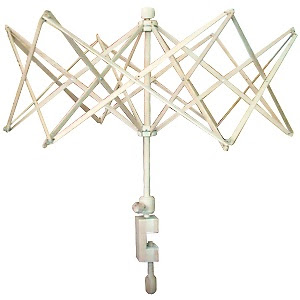The Year: A Look Back
+
Now, where to begin on this last day of the year?
To start, this is, to my thoroughgoing amazement, my one thousandth post. See?
 Too much detail? Here's a closer view.
Too much detail? Here's a closer view. It was mostly an accident of timing. I didn't plan it or anything, but a couple of weeks ago I noticed that I had done 987 posts, and a bit of quick math suggested that I could hit a thousand on December 31st or January 1st if I were diligent. And I am!
It was mostly an accident of timing. I didn't plan it or anything, but a couple of weeks ago I noticed that I had done 987 posts, and a bit of quick math suggested that I could hit a thousand on December 31st or January 1st if I were diligent. And I am!+
I was idly reading a website called ExChristian.net (but not for long, because it's not very well designed) and looking at some parodies of Jack Chick tracts, and I ran across this page in a tract called "Something Fishy":
 And that's a big no. You can't just make up etymologies based on what a word sounds like, or where you think a word might have come from.
And that's a big no. You can't just make up etymologies based on what a word sounds like, or where you think a word might have come from.I'm not getting into the Indian derivations of the names and words in question, because it's all wildly complicated (you can get some of it here, I guess), I don't know much about it, and I'll probably get it wrong. Whether "cunt" is related to "Kunti" isn't for me to say. I do know, though, that the English word, as I have noted before, is almost certainly either from Greek "gyne", meaning "woman", or Indo-European "gen-", which led to a family of Latin words such as "genus" and "generation".
"Kin", as it turns out, is from this latter source, logically enough. But "country"? That's just ridiculous. "Country" is from Latin "contra", "opposite, against", because the countryside is the land that's lying all around you--opposite to the position in which you find yourself. And "cunning" is related to English "ken", "knowing" (compare to the German verb "kennen", "to know"), which in turn is related to a whole batch of knowing-words that stem from Proto-Indo-European "gno-": "gnostic", "diagnosis", "prognosticate", "know", "con" (in the sense of "to study carefully"), and quite a few more that I think I will save for another day.
Etymology is not for people who like to make things up on the spot in support of a line of reasoning.
+
Speaking of saving something for another day, I said yesterday that I would finish up the Latin offspring of "specere", and here they are.
As I mentioned yesterday, we've got "inspect" and "expect", "spectator", "speculum", "speculate", "spectacle", "spectre" (or "specter" if you are American), "spectrum", and "specimen". What else?
All the other "-spect" words, of course: "aspect", something you look at; "circumspect", because you look around before making a decision; "suspect", when you look under something to see what's going on below the surface; "prospect", something that's right in front of you to be looked at; and "respect" (although this one is an idiom, because it literally means "to look back at", as does the more literal "retrospect").
And there's more! "Special" means something worth really looking at, and "species" is a special variety of a more general family--in other words, something "specific". "Respite" is a brief period of rest in which you may look back over your work. When something is "conspicuous", it compels you to look intently at it ("con-" being an intensifier here). "Despicable" (along with the verb form "despise") refers to something you look down upon. "Perspicacity" is clear-sightedness, literally the ability to see through something, and "perspective" is your view of that thing (or any other thing).
And one more, most unexpectedly: "spice", derived from "species" through French "espice"; the Latin original meant "wares", and only later took on its most specific sense.
Whew. You can see why I wanted to leave it for another day.
+
And I hope you have a happy New Year's Eve, don't drink and drive, kiss lots of willing strangers, and I'll see you in 2009.












